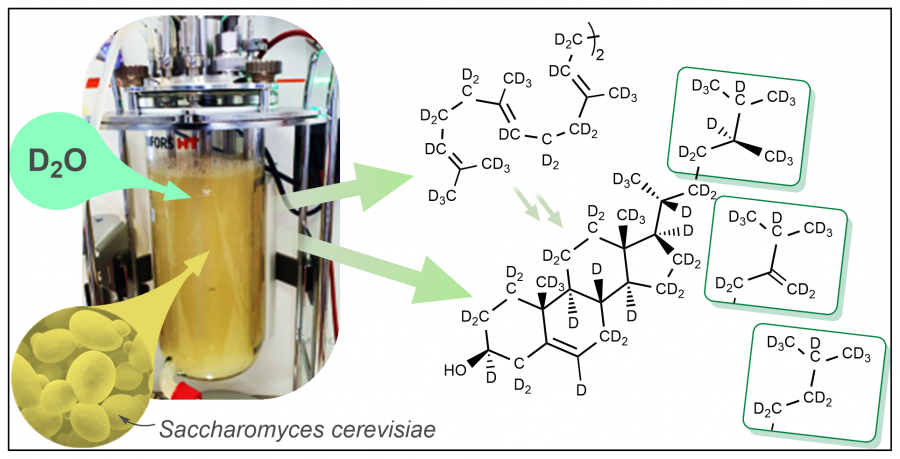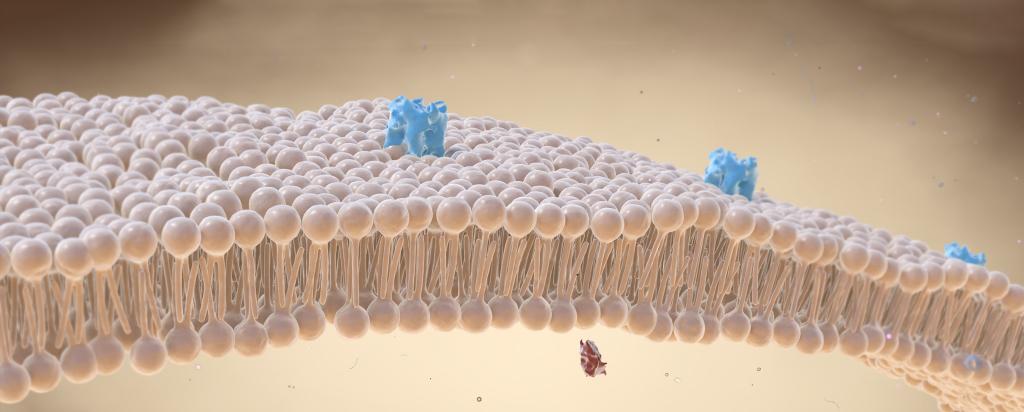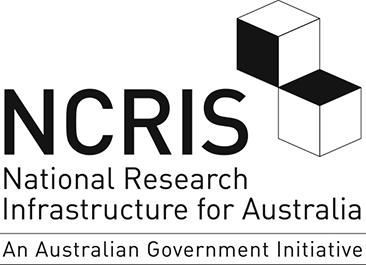
Published by NDF Staff, September 2023
The National Deuteration Facility can produce deuterated sterols, which are key components of biological membranes. Deuteration allows for studies of these membrane systems for applications such as improving formulations of lipid nanoparticles.
Sterols are key components of biological membranes. While cholesterol dominates mammalian membranes, plants and fungi use other sterols. It is desirable to have a range of deuterated sterols for neutron studies to create the most promising LNP formulations, as well as for the elucidation of biosynthetic pathways and for NMR, tracing and bioanalysis studies.
These compounds are too complicated to make artificially and must be produced by an organism. To make these materials in a deuterated form, we need an organism that grows in heavy water (D2O)– Baker’s yeast.

We have obtained suitably modified yeasts and grown them in heavy water, then purified the sterols they produced. The quality of literature data available was poor, and in the course of our work we have reassigned the identity of a sterol produced by a known strain of yeast. We have also revised incorrect literature claims about the distribution of deuterium atoms in sterols produced by yeast in heavy water and provided a methodology for the separation of closely-related sterols on a 100 mg scale. Better-quality experiments (NMR, LNP formulation/neutron and feeding studies) are now possible.
This work was recently published in Organic & Biomolecular Chemistry: https://doi.org/10.1039/D3OB00754E




